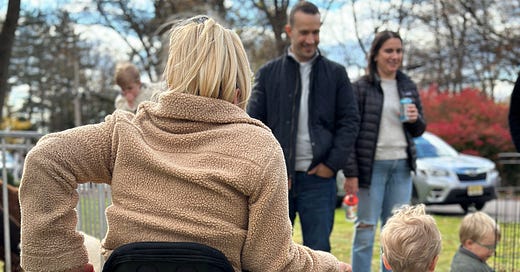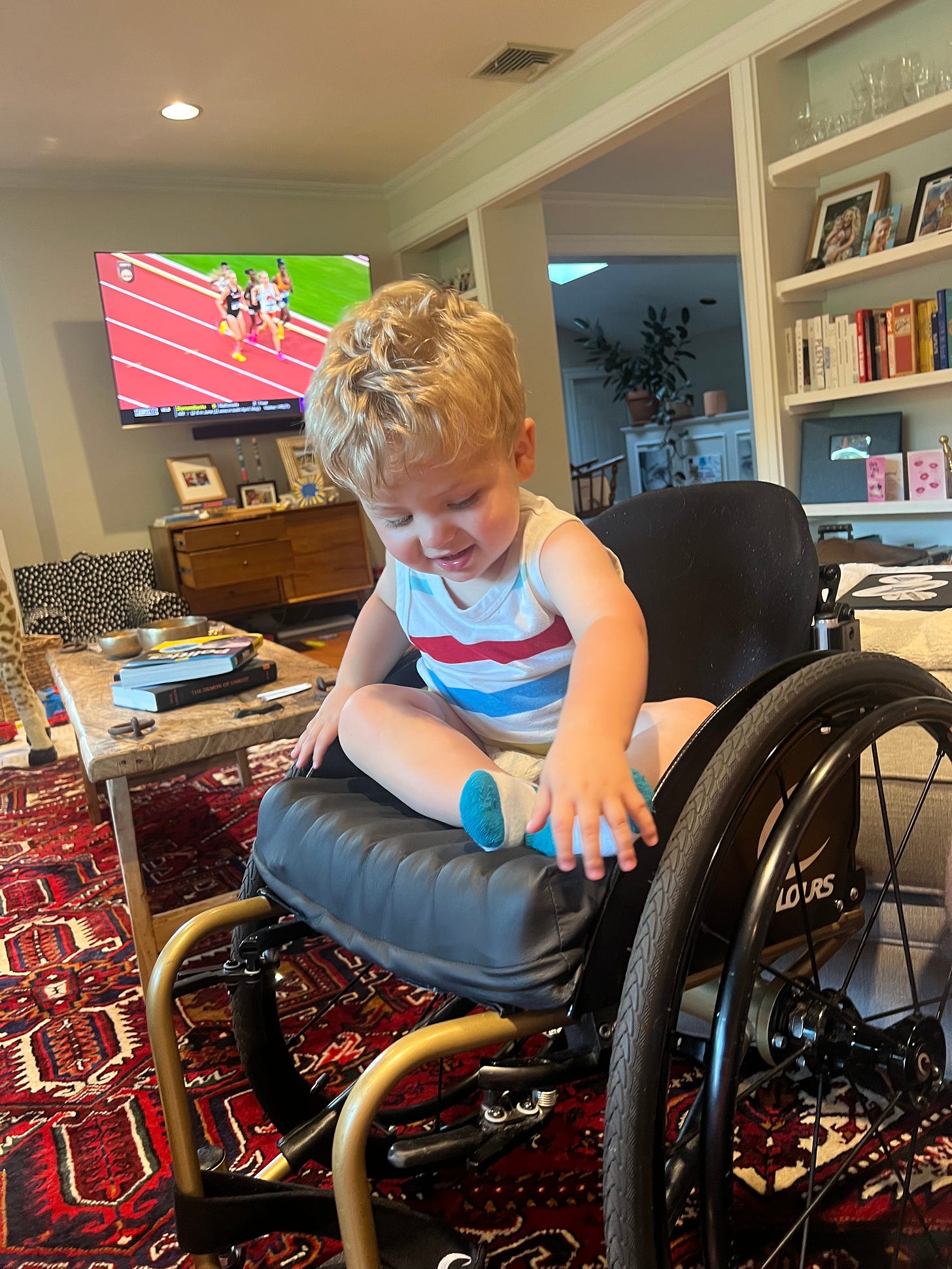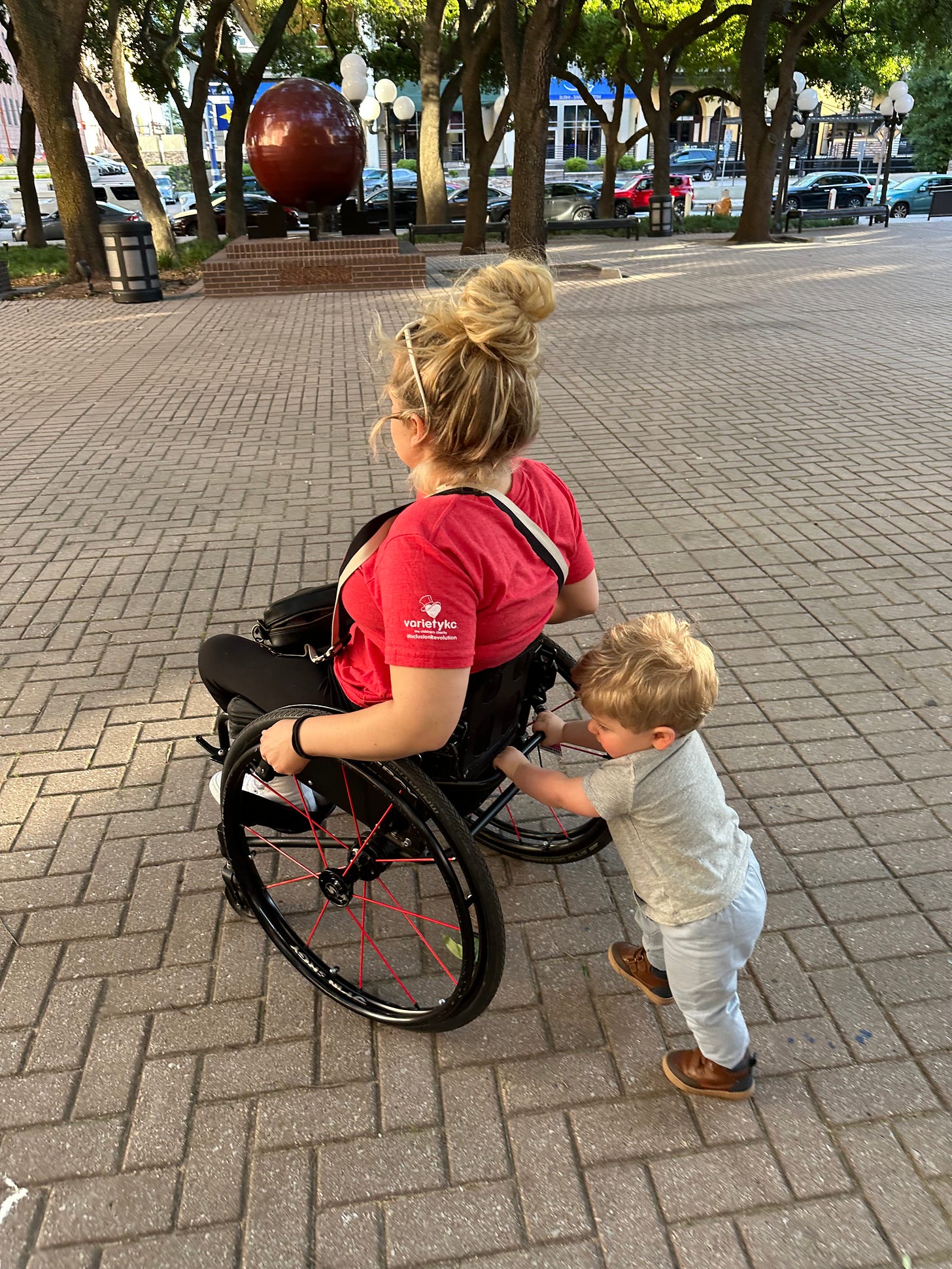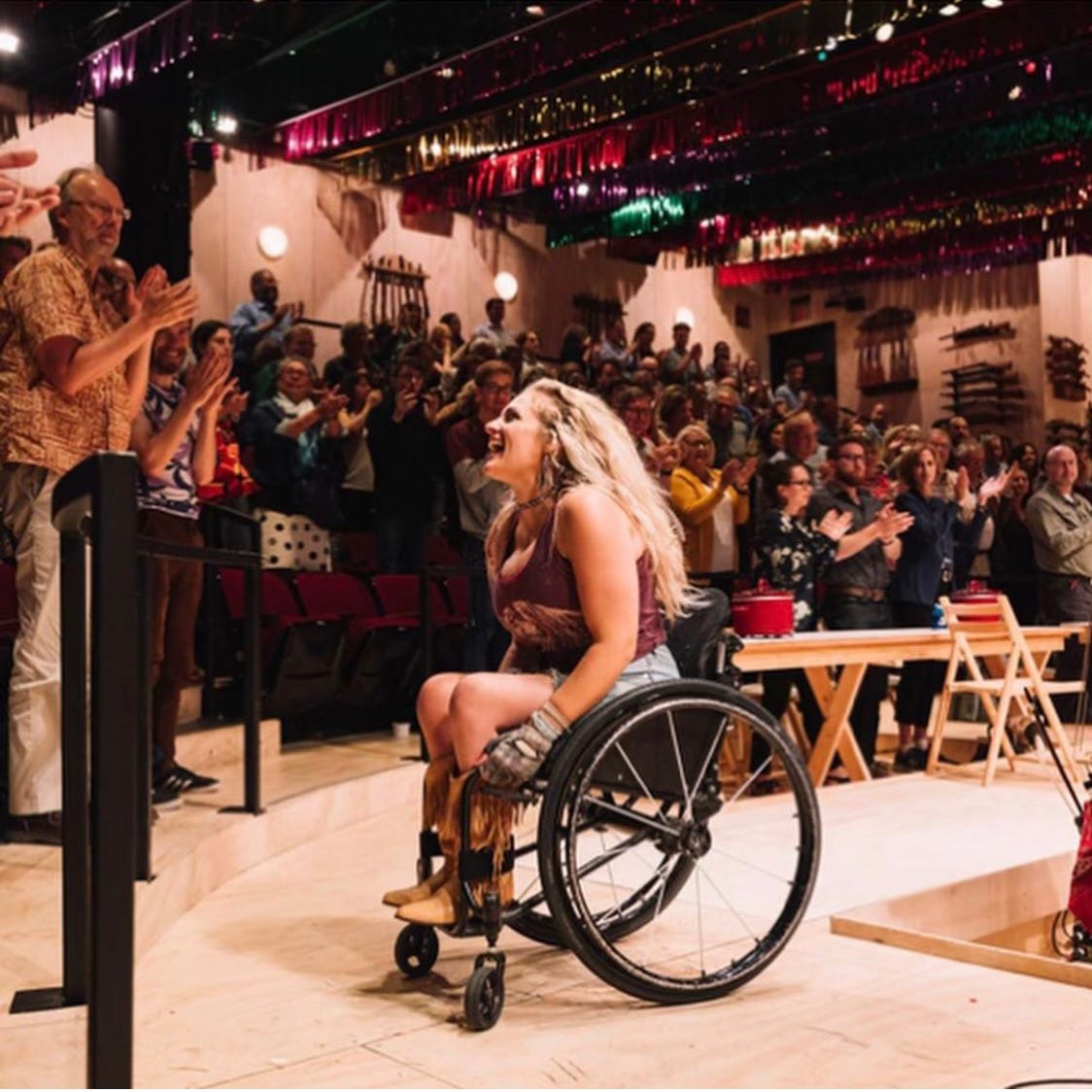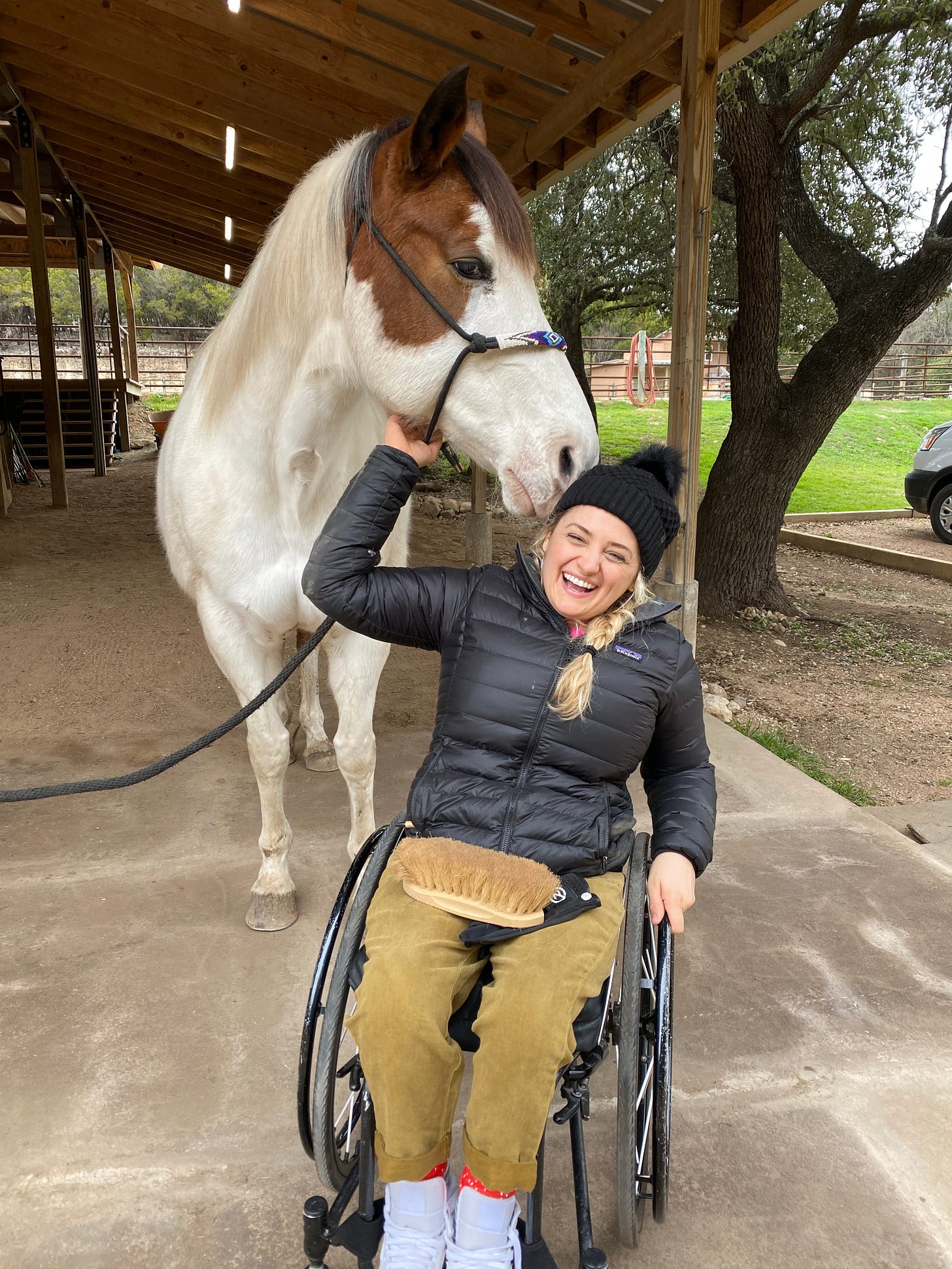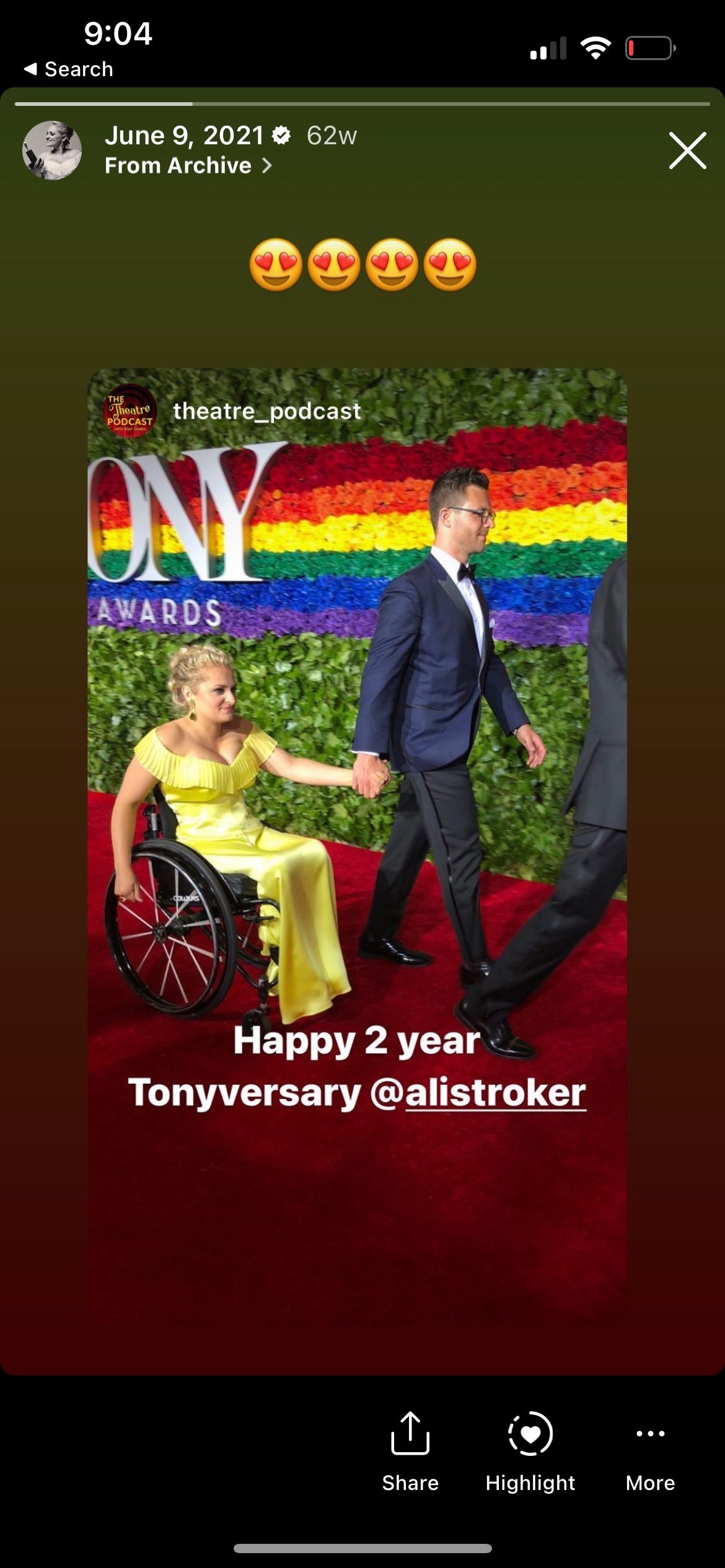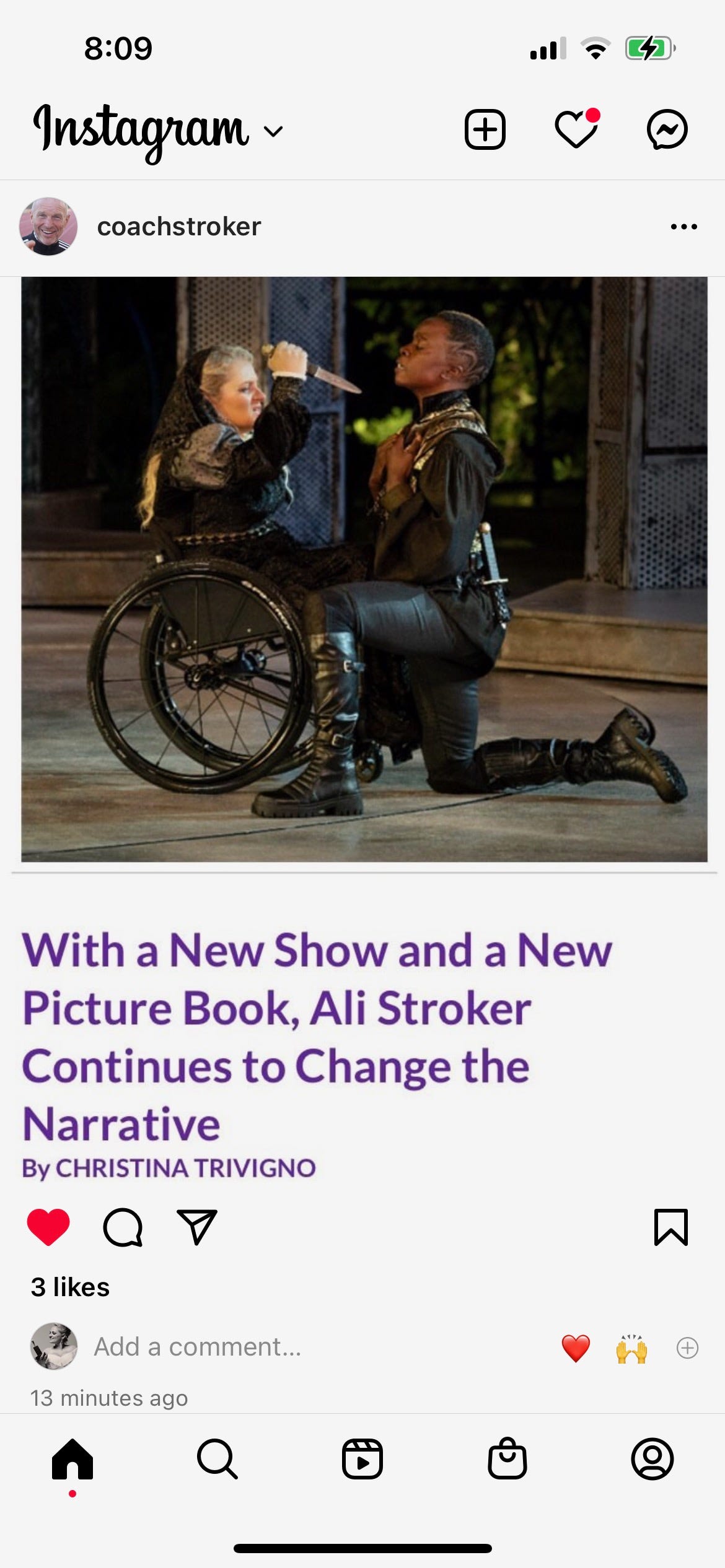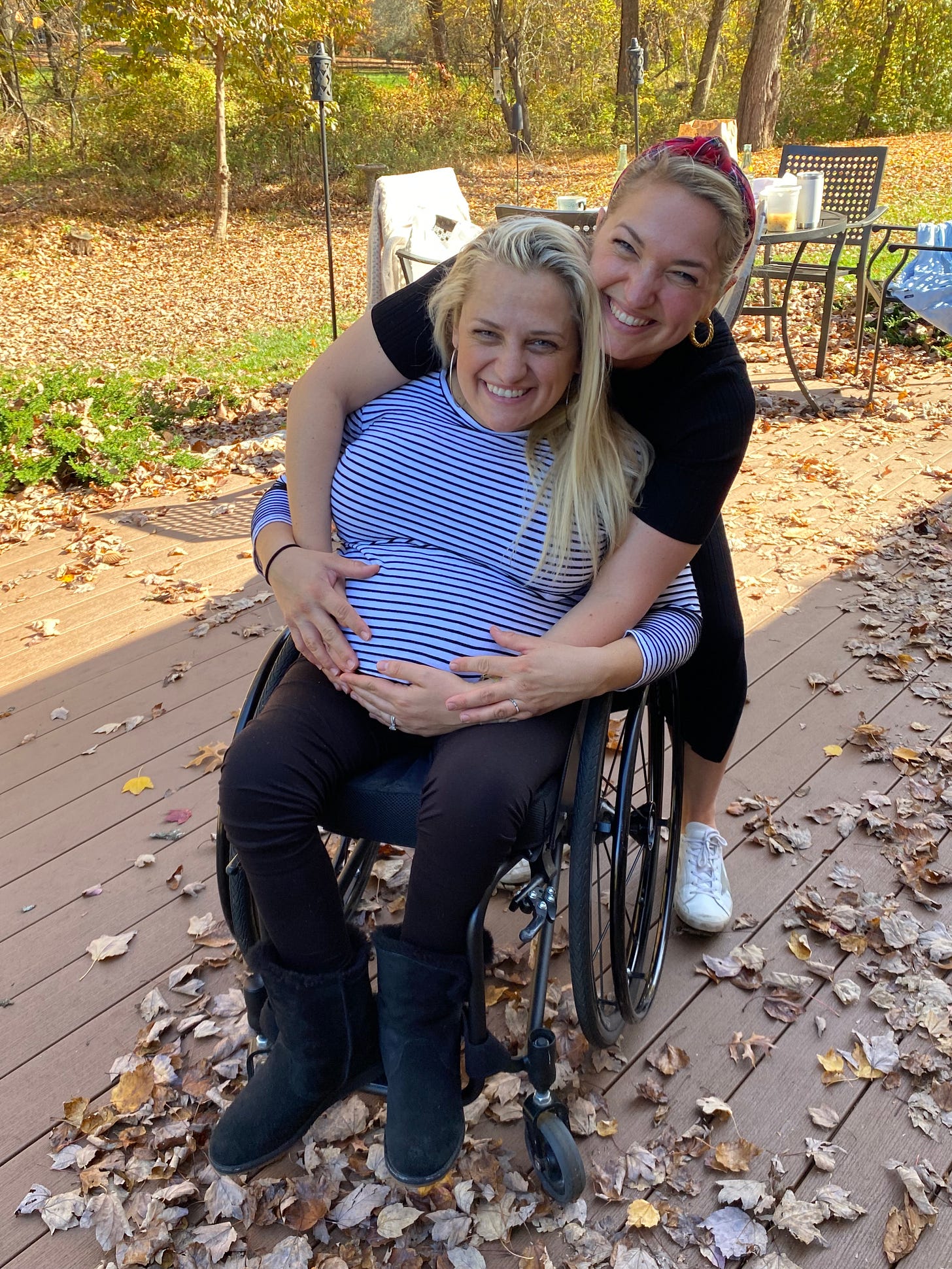10 Ideas of How to Show Up For the Disabled Community
Thoughts on how you can better educate, support and show up for your disabled family and friends.
In honor of July being Disability Pride Month, to mark the passage of the historic Americans with Disabilities Act (ADA) passed on July 26, 1990, we are welcoming the wonderful Ali Stroker1 (my sis!) to Hoka Moka! Together, she and I collaborated to share her own experiences, knowledge and ideas as a disabled person, as well as my own thoughts as a disabled ally (and sister of 2 disabled siblings) on how to better create more space, awareness, and support for your disabled community. We hope you remain open minded and learn something new.
Disability/disabled is not a bad word. Let’s use it.
Foster allyship from parents.
This can look like seeking out opportunities for exposing your children to disabilities (ie. going to a wheelchair basketball game, watching the Paralympics, adding content in your house about disabilities (books2, media3, tv), allowing for curiosity from your children, being okay with not always having the answer, if your child has the question “why is she in that chair?” encouraging the child to go up to the person with the disability and ask - if the timing and environment is right.).
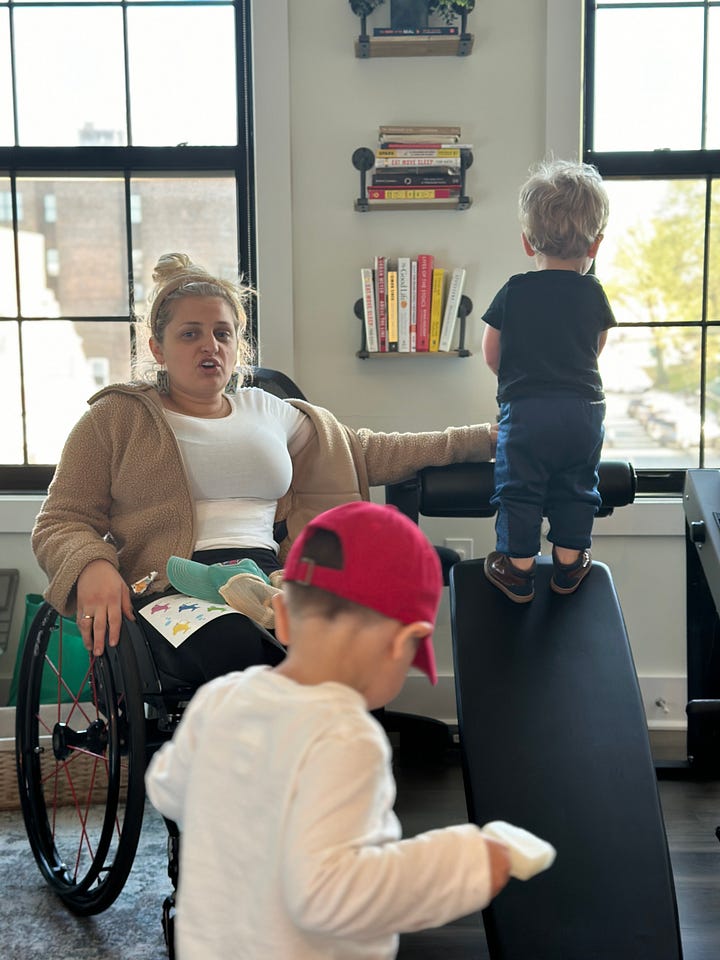
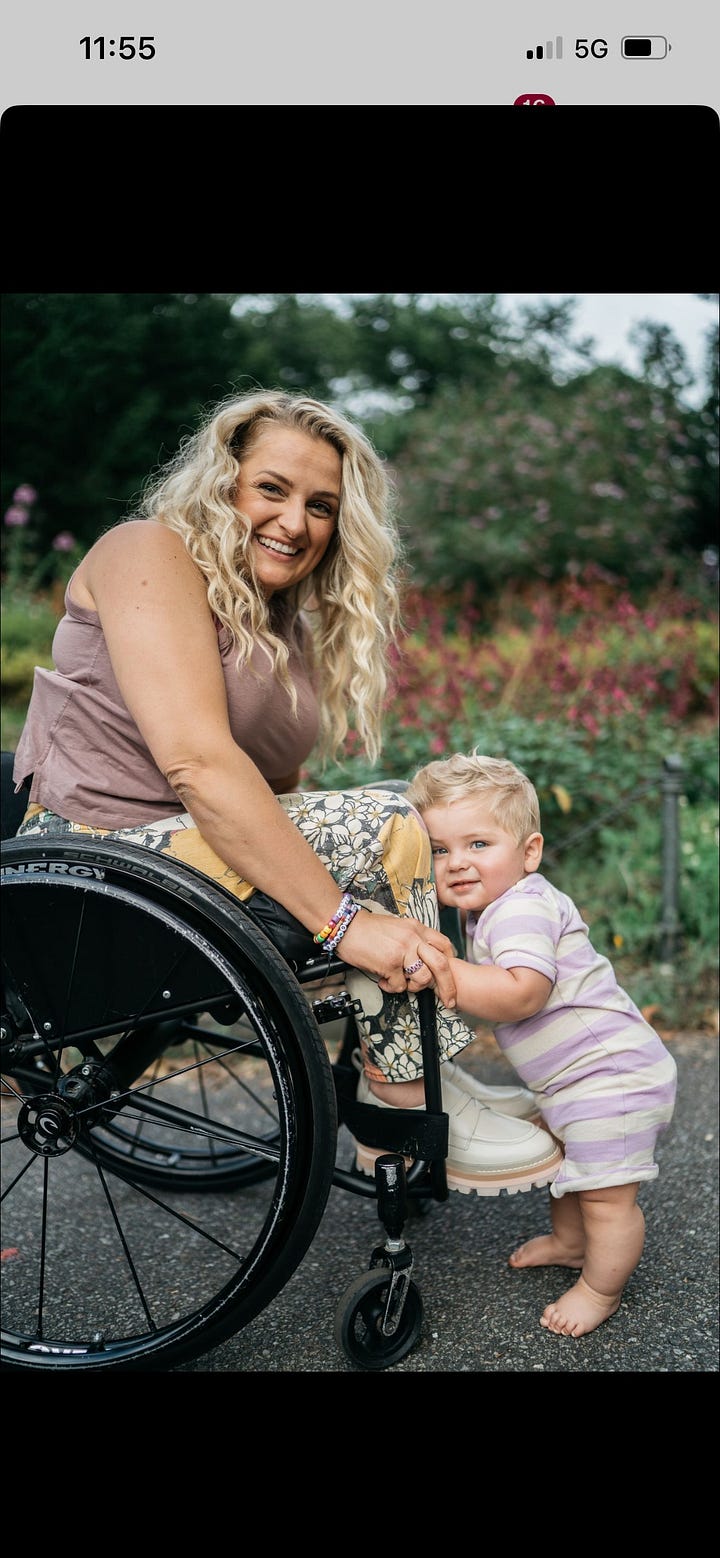
When needed, ask about boundaries for a disabled person’s equipment so they can feel respected. For example, teaching my 1 year old that “Aunt Ali’s wheelchair is not a toy” from the very beginning of him walking.
Bodily consent extends out to someone’s mobility/devices/equipment (ie. hearing aids, wheelchair, cane, walker, communication device, etc.) For example, if a child is using a communication tablet, that is not a toy for your child to grab and start playing with OR if your child sees someone using a cane, it is not appropriate for them to begin using it without asking first.
Watch Crip Camp on Netflix - an amazing documentary, produced by the Obamas to learn about the history of the disabled community
Allow disabled people to speak up for themselves.
Think about disabled people’s needs/accessibility before you spend time with them and initiate that conversation with them. Think about how you can make your home accessible if you’re inviting them. For example, if your bathroom is inaccessible, make that known to them before they arrive at your home so they can prepare in advanced.
Purchase equipment amongst a group of friends for your disabled friend (ie. think a communal ramp) - if you have an idea about access/ease/comfort for them.
Don’t assume people with disabilities need help. Wait for them to ask. Allow disabled people to speak for themselves and tell you what kind of help they prefer.
Don’t wait for accessibility to be perfect - most of the time it’s not. Instead, try having conversations with the person with a disability around how you can accommodate them in the environment you will be in.
What I’ve learned as an able bodied sibling of a disabled sister and brother is that there is always room for growth when it comes to educating yourself about inclusion, diversity and accessibility. It’s so easy to stay static while you wait for perfection, but instead I believe that as long as you’re trying, recognizing you may not get it right - and that’s okay, as long as you continue to edit/adjust. That’s how we grow as allies. As Maya Angelou says, “when you know better - you do better.”
Thanks, Al for always being so gracious with your time and energy, to share how we can do better. Love you forever. Xx
MORE ABOUT ALI: Ali Stroker is a Tony Award-winning actress for her role as ‘Ado Annie’ in the 2019 revival of Rodgers and Hammerstein's Oklahoma! She made history as the first actor in a wheelchair to appear on Broadway in Deaf West’s acclaimed 2015 revival of Spring Awakening. She can be seen as a series regular on Netflix’s, “Echoes”, as well as on Hulu’s, “Only Murders in the Building." She recurred on Netflix in “Ozark” and on ABC's “Ten Days in the Valley,” and guest starred on HBO Max’s “And Just Like That…”, CBS' “Blue Bloods” and “Instinct”, Freeform's “The Bold Type,” Fox’s “Lethal Weapon,” The CW's “Charmed” and Comedy Central's “Drunk History” as well as the children shows “The Helpsters” on Apple TV and a number of episodes of “Sesame Street.” Ali starred in the summer of ’22 in Shakespeare in the Park’s Richard III as Anne. She was on “The Glee Project,” culminating in a guest role on Fox’s “Glee”, and in Lifetime's holiday movie, "Christmas Ever After.” Ali is a regular on Nickelodeon's animated series, "Big Nate,” and she plays "Daisy" on Disney’s animated "Alice's Wonderland Bakery." Ali is the proud author of her middle grade novel, The Chance to Fly (Abrams Books), and her children’s book, Ali and the Sea Stars (HarperCollins). She can be heard on the Grammy nominated cast album of the revival of Oklahoma! the musical. Ali’s most proud roles are mommy to Jesse and wife to David!
Some of our favorite children’s books that feature disabled characters include: Awesomely Emma, The Perfect Swish, Ali and the Sea Stars, A Chance to Fly and Cut Loose.

